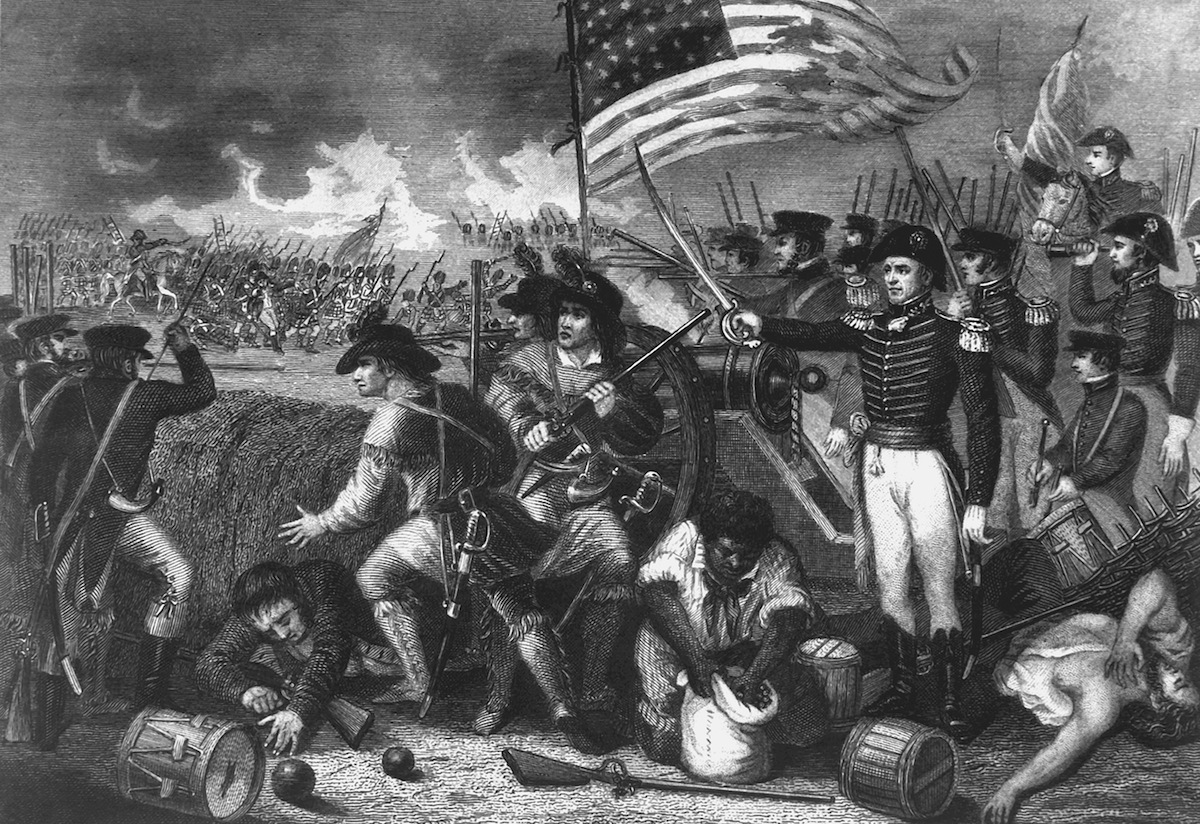
It was a spectacular military victory in a war short on American military victories: On this day 200 years ago — Jan. 8, 1815 — vastly outnumbered American forces blocked a British attack on New Orleans during the final battle of the War of 1812. Roughly 4,500 Americans crushed the British force of 7,500. The Battle of New Orleans provided a huge morale boost for American troops, who had been ill-prepared for the war, and for the citizens of the fledgling nation that had only recently declared its independence from Britain.
No tears were shed for the fallen Brits. A newspaper article at the time crowed, “Glorious news! … American valour has again come in contact with the veterans of the old world, and the bloodhounds of England are destroyed. The riflemen of Tennessee and Kentucky have mowed down like grass the ranks of the ferocious islanders.”
But it was a victory that never would have happened in the modern world. A phone call, a fax, an email, a letter sent by airmail — the existence of any of those tools could have stopped the entire battle from happening.
That’s because the war, as it turned out, had ended two weeks earlier; word just hadn’t yet made it to the Gulf Coast from Ghent, in Belgium, where the U.S. and Great Britain had declared a stalemate and signed a treaty.
So in some ways the Battle of New Orleans was all for naught. That’s even more true because the treaty, when it finally arrived in D.C. in early February, restored the status quo ante bellum, which meant that America’s main objectives in the war — to end Britain’s trade restrictions and to stop its habit of seizing American sailors from merchant ships and impressing them into the British Royal Navy — were left unattained. However, the victory at New Orleans wasn’t completely meaningless: it helped establish the U.S. as a force to be reckoned with on the global stage. British diplomat Augustus J. Foster said of the battle, according to the USS Constitution Museum, that “The Americans… have brought us to speak of them with respect.” If there had been a way to get word to New Orleans that the war was over, if the battle had never been fought and won, the status quo to which the U.S. returned would actually have been a very different situation. To imagine a then-futuristic telephone call bringing an early end to the War of 1812 is to imagine that the last two centuries might have turned out very differently for a nation that eventually became one of the world’s great powers.
The battle also made a hero out of Andrew Jackson, who led the U.S. troops, and even redeemed one of New Orleans’ most notorious figures, the pirate Jean Lafitte. Although the French-born Lafitte made a living selling smuggled and pirated goods on the Crescent City’s black market, he and his brother Pierre turned out to be devoted — if self-interested — patriots.
According to a later TIME article about the family, “Though the derring duo occasionally raided an American ship, by and large they were fiercely loyal to their adopted country. When the British approached Jean for help in the Battle of New Orleans in 1814, he led them on long enough to learn their plans, then brought his knowledge — and his guns — to the aid of Major General Andrew Jackson.”
It did, however, turn out that at least one thing returned to its pre-war status quo: Lafitte’s career. “Pardoned for his past plundering,” TIME reported of Jean Lafitte’s post-battle plans, “he cheerfully returned to piracy.”
Read more: The War of 1812: When the U.S. Invaded Canada — and Failed
More Must-Reads from TIME
- Cybersecurity Experts Are Sounding the Alarm on DOGE
- Meet the 2025 Women of the Year
- The Harsh Truth About Disability Inclusion
- Why Do More Young Adults Have Cancer?
- Colman Domingo Leads With Radical Love
- How to Get Better at Doing Things Alone
- Michelle Zauner Stares Down the Darkness
Contact us at letters@time.com